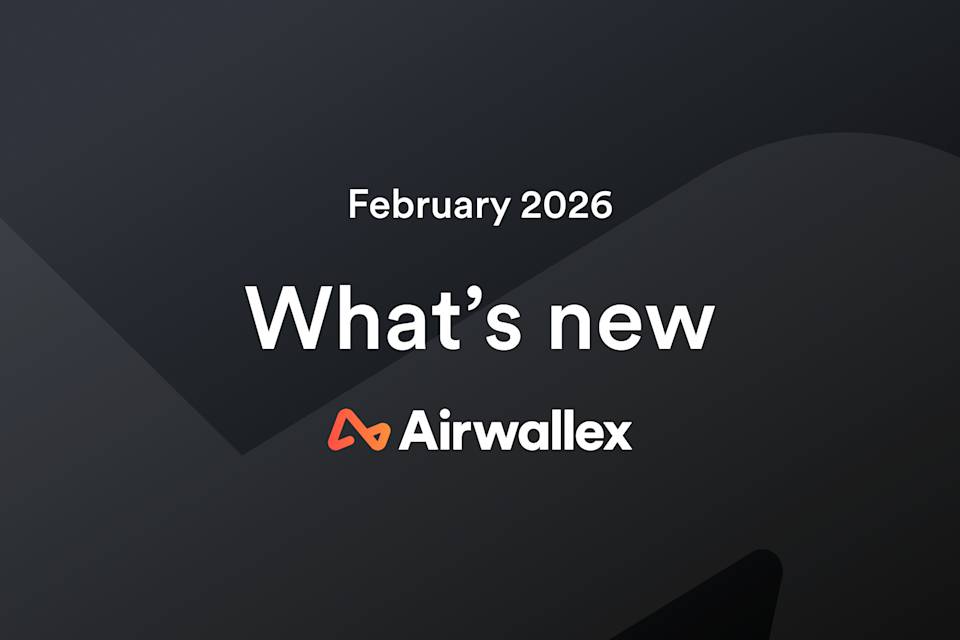Expanding business to Dubai: receiving payments, remitting money to Dubai and limitations

Kirstie Lau
Brand Content Marketing Manager
Trade between Hong Kong and the United Arab Emirates (UAE) has increased significantly over the past decade. According to figures from the Hong Kong Trade Development Council (HKTDC), the compound annual growth rate between 2013 and 2022 reached 5.7%. The business and economic ties between the two regions have also become much closer. Exports to the UAE from Hong Kong grew by 35.3% in 2022, driving up the total trade volume between the two sides by 27.6% annually.
Being the commercial, trade and investment center of the UAE, Dubai has become the key gateway connecting with the Hong Kong business community. The Dubai Chamber of Commerce even signed a memorandum of understanding with the HKTDC last year, pledging to promote trade between the two regions. They also announced the launch of an international office in Hong Kong.
Dubai is one of the most promising markets for Hong Kong’s e-commerce sector to seize business opportunities. This article will introduce different remittance methods and guide you to find low-cost and efficient methods that suit your business.
The relationship between Dubai and the United Arab Emirates (UAE)
The UAE consists of seven emirates, with Dubai being one of them. Dirham (AED) is the currency used in Dubai, as well as in other emirates of the UAE.
Common payment collection methods in Dubai and the UAE
According to a survey conducted by Airwallex and global consulting firm, Edgar, Dunn & Company in January 2024, customers’ purchasing desire is largely affected by the pricing currency offered to them. Aside from eCommerce receiving payments in Dirham from customers, other businesses also have to receive funds in Dirham from business partners.
If you wish to receive payments in Dirhams (AED), the most direct way is making transactions through traditional bank corporate accounts. However, there would be foreign exchange fees per each transaction, which can add up and erode corporate profits.
Besides, businesses can also open a Dubai offshore account. Select a reputable bank that provides offshore banking services, register an offshore company in Dubai, submit verification documents to the bank, and attend online meetings. Once the account is successfully approved, you are supposed to meet the minimum deposit requirements.
How to collect payments in Dubai using Airwallex?
After opening a global business account on Airwallex, you can set up an AED account, which comes along with local bank details, such as branch codes and a dedicated account number. When receiving payments, funds can be directly transferred into your AED account and you can use it for future remittance to save currency conversion costs.
Besides, eCommerce businesses can also easily integrate plugins with popular eCommerce platforms or set up payment links to directly receive payments from customers.
It only takes 30 minutes to create an Airwallex account for receiving global payments online. Once the account is created, you can open a Global Account with a dedicated Dubai bank, branch code and account number for receiving payments in Dirham (AED). When customers in Dubai pay you, the funds will be deposited into your account without going through any currency exchange, allowing you to pay suppliers in Dirhams (AED) from your account at any time, reducing the hassle of unnecessary foreign exchange expenses without any hidden charge. You can avoid the risk of exchange rate fluctuations caused by local economic policies and market demands.
Three common methods for remitting to Dubai
1. Bank telegraphic transfer: This refers to the transfer of funds between different banks. Banks in different countries/ regions process cross-border fund transfers through direct remittance instructions. Banks around the world generally use the Society for Worldwide Interbank Financial Telecommunications (SWIFT) system for remittances. The remitter has to provide detailed remittance information, including the recipient bank’s SWIFT code, name and address of the recipient bank or the intermediary bank, as well as the Dubai account number and name of the recipient.
2. Money changer: Some exchange stores offer remittance services, but not all of them can remit to Dubai. Compared to banks and third-party remittance platforms, the risk of remitting via exchange stores is higher so it is important to carefully choose stores with good reputations. On the other hand, the procedures of remitting via exchange stores are also more complex. Remitters need to make payment to the exchange store through methods such as FPS, cash or cheques before further remittance arrangements can be made. Money changers generally offer real-time exchange rates, which may be affected by fluctuating global financial situations. Handling fees are also required. It is generally difficult for remittances via money changers to be credited on the same day. Those who are making remittances for commercial purposes are required to provide additional documents such as proof of business registration etc.
3. All-in-one payment platforms: Different payment platforms on the market provide cross-border remittance services. Airwallex, the all-in-one financial platform, is regulated by the Hong Kong Customs and Excise Department and holds a money service operator license. Users can create a global business account for free within a few minutes, enjoy market-leading exchange rates, and conduct secure and efficient cross-border remittances with zero handling fees.

Comparison of different international remittance services
| Bank telegraphic transfer | Money changer | Airwallex |
|---|---|---|---|
Cost | Requires a minimum deposit for opening a business account. If the requirement is not met, there may be a monthly charge of HK$150 to HK$200. | You need to pay the relevant funds first before further remittance arrangements can be made, resulting in additional time costs. Handling fees are also required. | No account opening fees, minimum deposit requirements, or transaction fees. No hidden charges |
Processing time | Within 5 working days | 5 working days | 70% of transfers can arrive within the same day |
Handling fees | Charged per transaction. Major banks generally waive the handling fee but intermediary and recipient banks may charge a fee | Real-time exchange rates plus a handling fee | $0 transaction fee, only a 0.2% currency conversion fee above the interbank exchange rate |
Are there any limits on remittance amounts to Dubai?
The remittance limits to Dubai depend on the currency being transferred. Generally, transactions conducted in dirhams are capped at AED 40,000 (equivalent to approximately HK$85,041), while foreign currency (any currency) transactions have a limit of US$50,000.
Banks and online remittance platforms generally implement remittance limits and the amounts vary for registered and non-registered recipients, lacking flexibility. Airwallex, however, does not impose remittance limits, allowing businesses to set the amount for each transaction based on their needs.
Things to note when remitting large amounts of funds to Dubai
Before remitting large amounts of funds to Dubai, you should consider the following points:
Remittance limits and procedures: Understand the daily/per-transaction limits and remittance procedures, including the required documentation.
Exchange rates and handling fees: Familiarize yourself with the exchange rate trend so that you can better compare rates and fees among different banks. You may also choose third-party remittance platforms, such as Airwallex, to enjoy competitive exchange rates and $0 transaction fee offers.
Processing time: Different banks and third-party remittance platforms have different processing speeds. Businesses that often have to handle unexpected and urgent remittance needs are suggested to choose remittance platforms that support same-day crediting.
Licenses and security: Choose a trustworthy and reputable remittance platform and ensure that it has security measures in place that comply with international standards.
Risks: Understand the limitations and risks of different remittance methods. Select remittance institutions that provide remittance tracking services to minimize the risk of transfer delays.

What documents should small and medium-sized enterprises prepare when remitting to Dubai?
Proof of identity: identification documents are generally required when making remittances.
Address proof: some remittance platforms may require the remitter to provide address proof of the business, such as bank statements.
Recipient information: Name, address and contact information of the recipient
Purpose of transfer: Some remittance platforms require the remitter to explain the purpose of the transfer
Detailed bank account information: If transferring through a bank, the remitter will have to provide detailed bank account information of the recipient, such as IBAN (International Bank Account Number) and SWIFT code.
What are the advantages of remitting to Dubai through Airwallex?
Secure and reliable: Airwallex is an all-in-one finance and remittance platform. It is regulated by the Hong Kong Customs and Excise Department and holds a money service operator license (MSO License No. 16-09-01929). It also holds financial service licenses issued by over 60 countries/regions worldwide.
Efficient crediting: Users can create a global business account online for free within a few minutes. 70% of remittances can arrive within the same day.
Eliminate unnecessary costs: Opening an Airwallex account requires no account opening fees. Remittances and transactions also involve no hidden charges. It supports like-for-like settlement, which can help businesses to eliminate conversion fees. It also provides market-leading rates, paying only a fee as low as 0.2% above the interbank exchange rate.
Aside from supporting remittances to over 180 countries and regions worldwide, Airwallex’s global Business Accounts also provide batch transfers, enabling businesses to simplify the process of making a large number of payments to recipients in different countries and different currencies. Airwallex’s integration with the accounting software Xero enables users to easily track payments by syncing all their transactions on an hourly basis. The fintech platform’s Borderless Card is also available for convenient payments of recurring expenses, such as advertising and SaaS subscriptions.
How does Airwallex calculate the exchange rate between HKD and AED?
Airwallex provides customers with market-leading exchange rates and only charges a currency conversion fee as low as 0.2% above the interbank rate.
Click here to open an account now and expand your business to Dubai with the help of Airwallex.

Frequently asked questions
Is it safe to remit through Airwallex?
Airwallex is regulated by the Hong Kong Customs and Excise Department and holds a money service operator license (MSO License No. 16-09-01929). It also holds financial services licenses issued in over 60 countries/regions worldwide.
Can I track the progress of my remittances with Airwallex?
Webhooks enable Airwallex to send instant, real-time push notifications to your application on events that occur in your account, such as successful transfers or refunds.
How to remit to Dubai securely and efficiently?
If you remit through Airwallex, 70% of remittances can arrive within the same day.
View this article in another region:Hong Kong SAR - 繁體中文

Kirstie Lau
Brand Content Marketing Manager
Kirstie Lau is a fintech writer at Airwallex, and has built up a wealth of knowledge in financial operations systems. In her day-to-day, she dedicates herself to crafting content that fits the unique needs of businesses seeking financial operations solutions. Kirstie’s background in analytics and product marketing gives her a unique perspective on guiding businesses through the complex world of payments.
Posted in:
Business bankingShare
- The relationship between Dubai and the United Arab Emirates (UAE)
- Common payment collection methods in Dubai and the UAE
- How to collect payments in Dubai using Airwallex?
- Three common methods for remitting to Dubai
- Comparison of different international remittance services
- Are there any limits on remittance amounts to Dubai?
- Things to note when remitting large amounts of funds to Dubai
- What documents should small and medium-sized enterprises prepare when remitting to Dubai?
- What are the advantages of remitting to Dubai through Airwallex?
- How does Airwallex calculate the exchange rate between HKD and AED?
- Frequently asked questions


